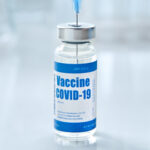After Diagnosis
Dr. Aletaha next discussed issues relevant to patients after the diagnosis of RA has been established. Much has been made of the findings related to the risks of major adverse cardiovascular events (MACE) and cancers in the ORAL Surveillance study.8,9 In this study, patients aged 50 and older with moderate to severe RA, one or more cardiac risk factors and inadequate response to methotrexate were divided into one of three clinical arms: 5 mg of tofacitinib given twice daily plus methotrexate; 10 mg of tofacitinib given twice daily plus methotrexate (Note: After the drug safety monitoring review, this dose was lowered to 5 mg given twice daily); or a tumor necrosis factor-α (TNFα) inhibitor plus methotrexate.
The study demonstrated that the risks of MACE and cancers were higher for the patients in the tofaci- tinib treatment groups than for those in the TNFα inhibitor group.
In a post-hoc analysis of the ORAL Surveillance study, Charles-Shoeman et al. found that among patients with- out a history of atherosclerotic cardio- vascular disease (ASCVD), MACE risk did not differ in patients treated with 5 mg of tofacitinib two times per day from the risk of patients on TNFα inhibitor treatment. The authors note their findings are limited by the exploratory nature of their study and low statistical power, but that any absolute risk excess is likely low.
Dr. Aletaha made several important statements on this topic: Many RA drugs help improve cardiovascular risk; findings of the ORAL Surveillance study differ from those of observational studies on this subject; and RA poses an intrinsic increased risk of cancer for patients with the condition. For all of these reasons, further study of Janus kinase (JAK) inhibitors is warranted and such studies may better inform rheumatologists of the true risks associated with these medications. On the subject of malignancy, Dr. Aletaha explained that EULAR has developed several points to consider with regard to initiating targeted therapies in patients with inflamma- tory arthritis and a history of cancer. These recommendations include:10
• Assess the individualized risk of cancer recurrence; Coordinate care with the oncology team;
• Avoid delays in the initiation of appropriate treatment for inflammatory arthritis;
• Use anti-cytokine biologic disease-modifying anti-rheumatic drugs (bDMARDs) in patients with a history of solid cancer and B cell-depleting therapy in patients with a history of lymphoma; and
• Using JAK inhibitors and abatacept with caution.

